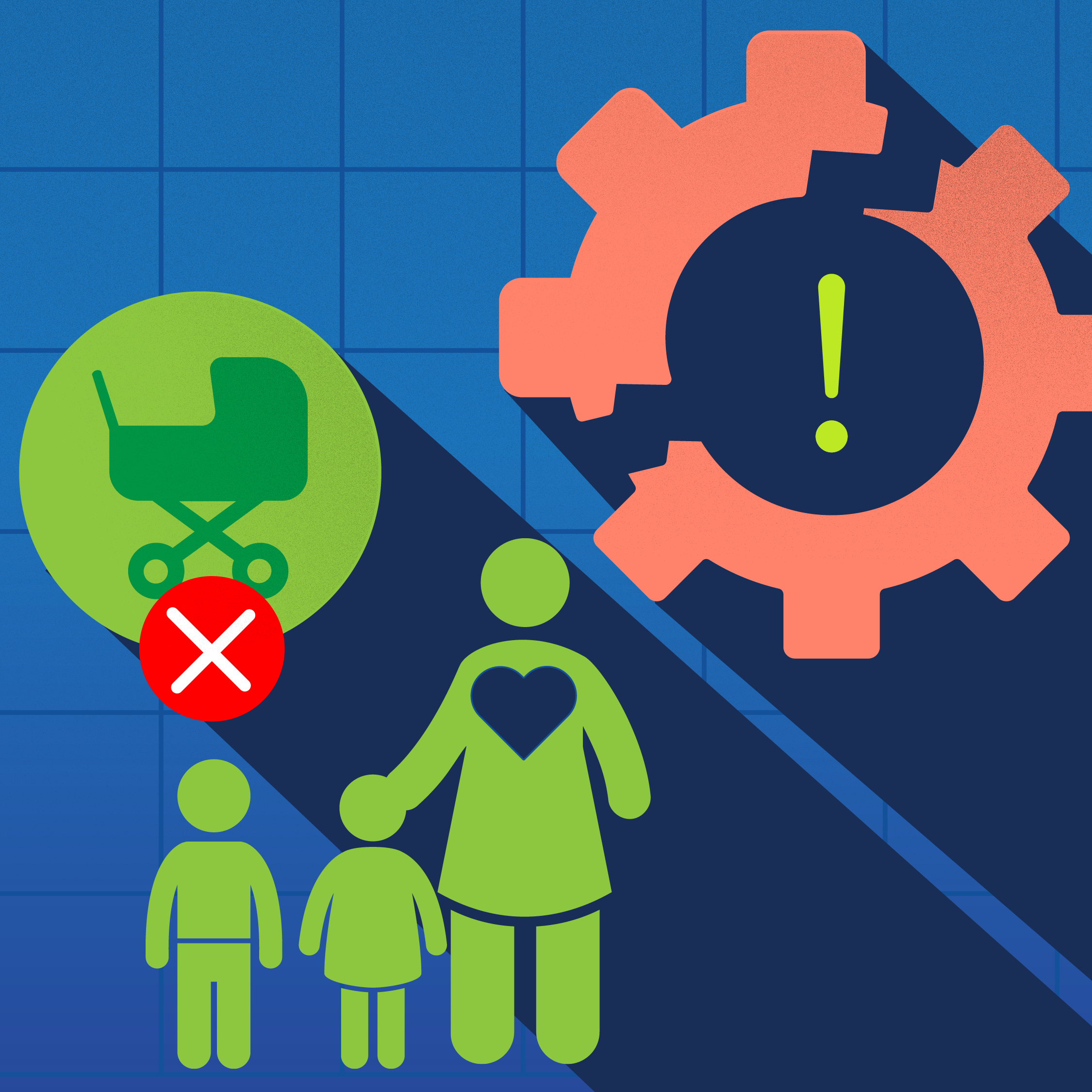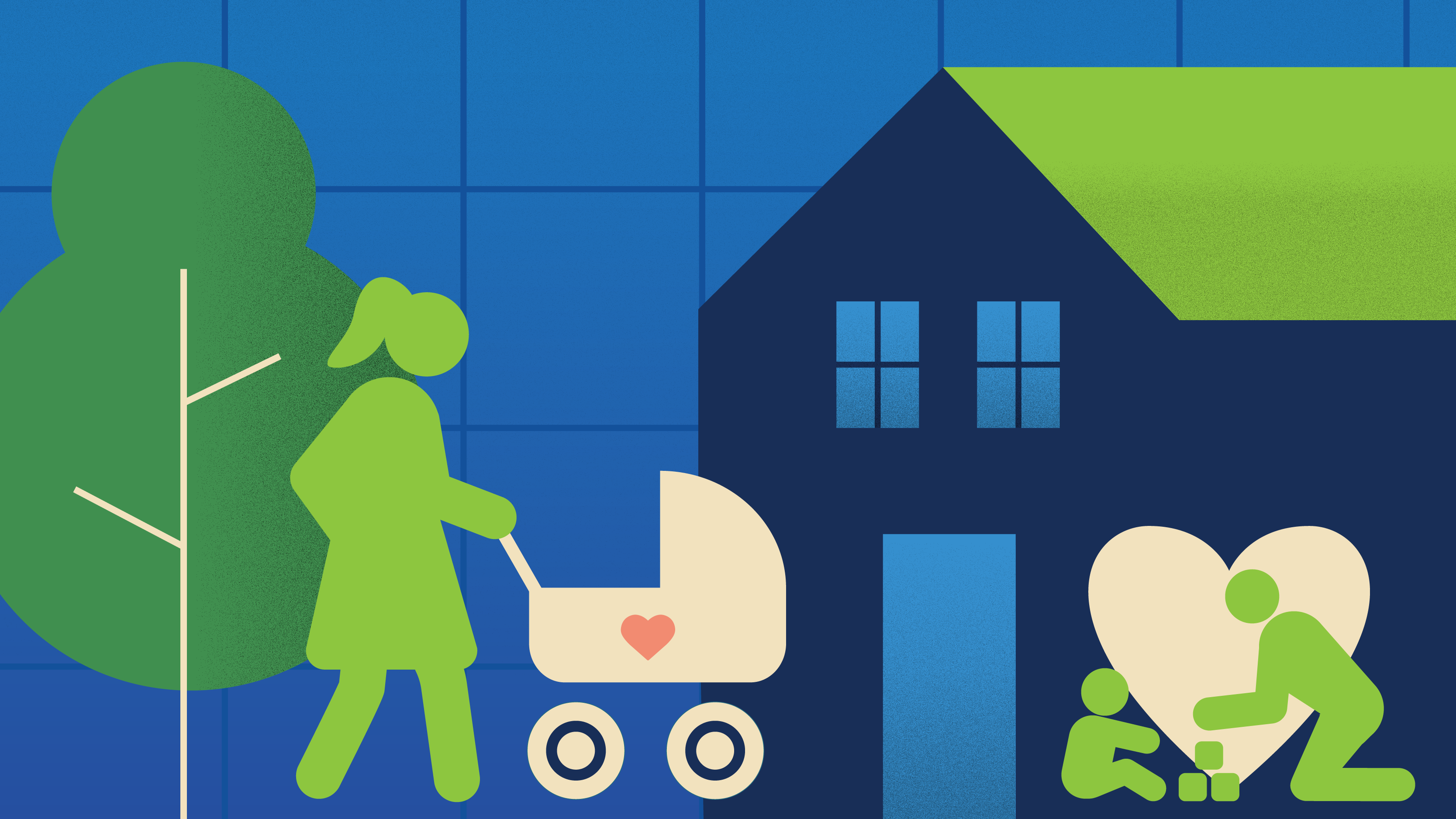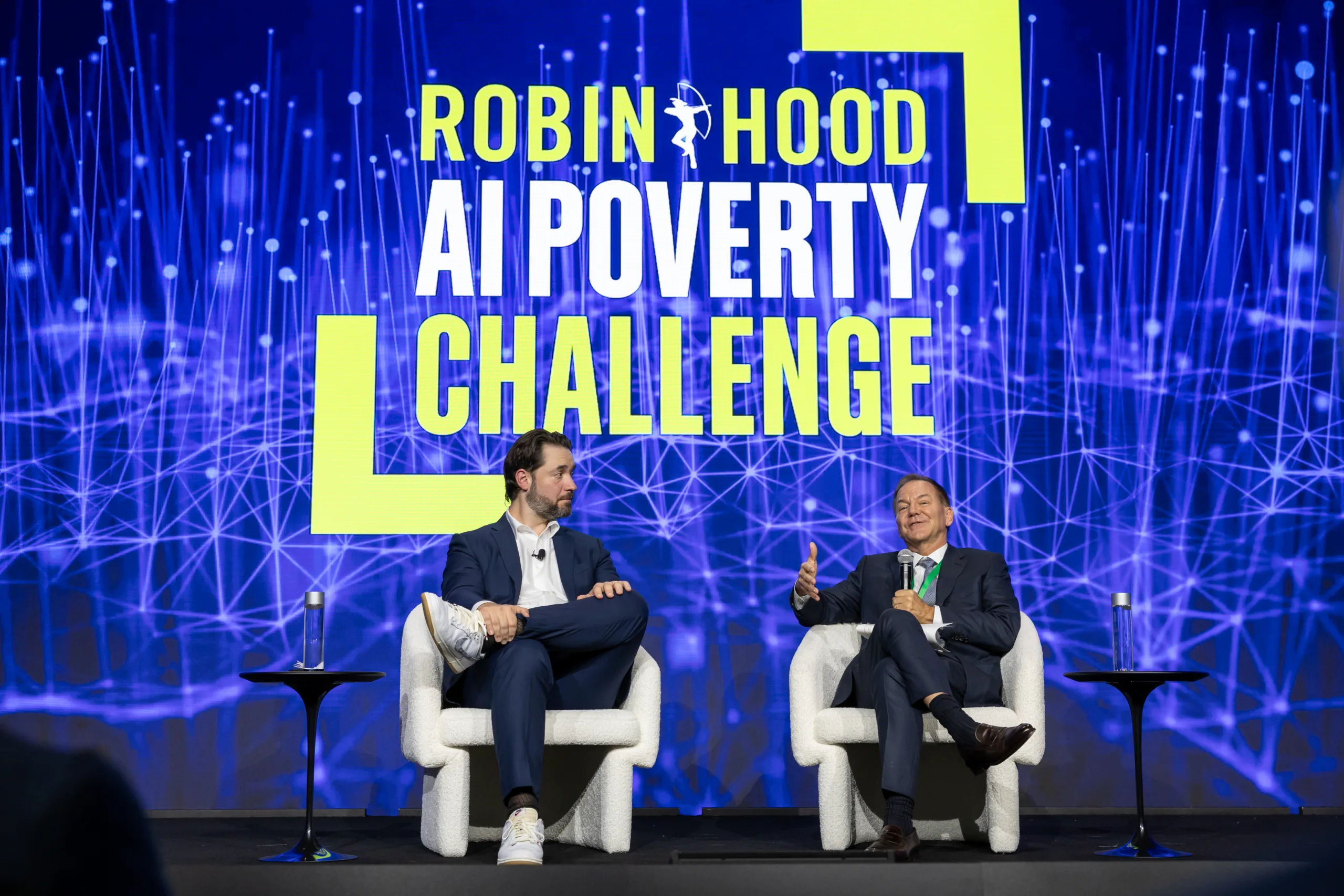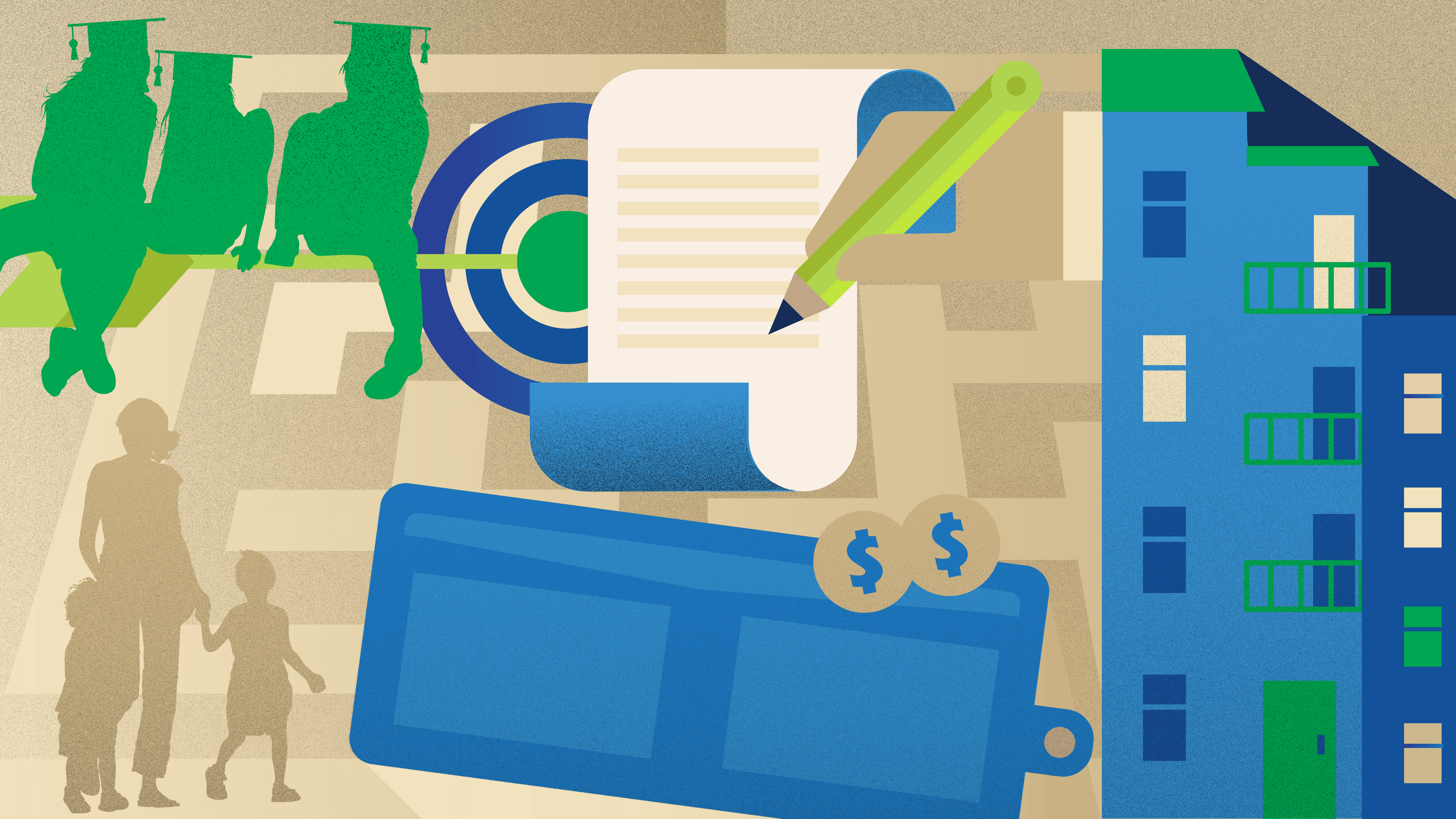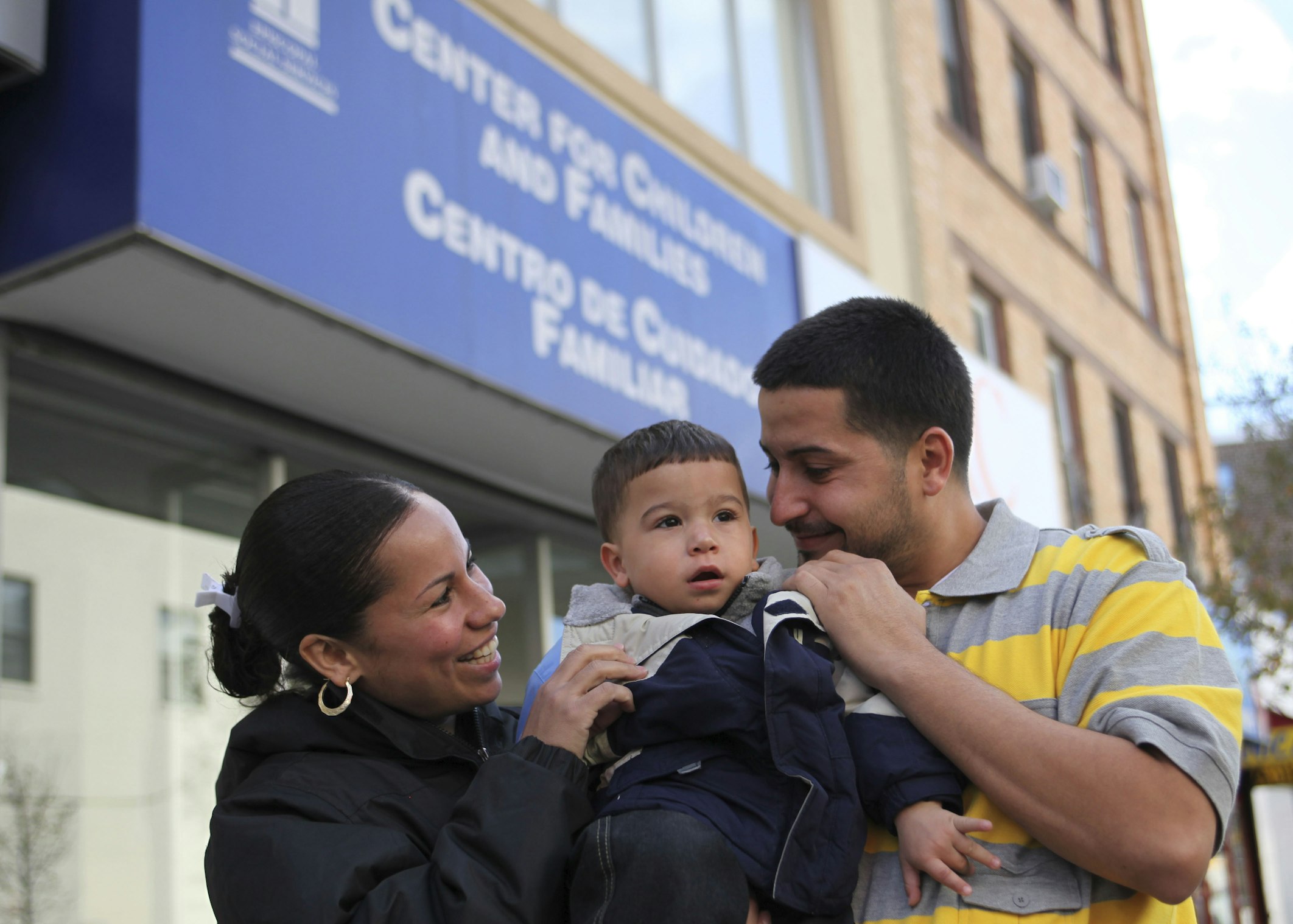Sep 30, 2024 Press Release
New Early Childhood Poverty Tracker Reports Find Child Care Issues Prevent Working NYC Mothers from Participating in the Workforce Amid Lack of Affordable Options
Families in which a mother faced child care-related work disruptions were 1.5 times more likely than other families to experience material hardships a year later. A third of New York City families use home-based child care, which is often viewed as less expensive than traditional child care centers. However, two out of three working families in NYC would not be able to access home-based child care without receiving a public subsidy.
NEW YORK, NY — Robin Hood, in collaboration with Columbia University’s Center on Poverty and Social Policy and its Population Research Center, released two companion spotlight reports today with implications for access to and affordability of child care across New York City’s five boroughs. The Early Childhood Poverty Tracker Reports, Child Care-Related Work Disruption, and Home-Based Child Care in NYC found the city’s child care landscape is not adequately serving mothers of children under three years old, regardless of the family’s income. These reports highlight that there are too few child care slots available and most available remain unaffordable, and as a result, mothers are facing economic setbacks.
These reports find that half of all working mothers in New York City face disruptions to their work lives caused by child care issues. Almost a third of all mothers in the labor force, both below and above the poverty threshold, make decisions not to look for a job due to child care issues. More than half of mothers (53%) living below 200% of the poverty threshold report challenges with work disruptions due to inconsistent child care.
“While New York’s investment and 3-K for All and Pre-K for All has been a lifesaver for hundreds of thousands of families, too many families continue to lack access to reliable and affordable child care, especially for children from birth to three. Along with the lack of affordable housing and the soaring cost of living, child care challenges leave too many parents grappling with how to make ends meet and whether they can continue to live in New York City,” said Richard R. Buery, Jr. CEO of Robin Hood. “Containing child care costs, expanding access, stabilizing home-based child care through higher subsidies, and ensuring that providers and their staffs have access to competitive benefits, job training, and professional development, are all essential to building a vibrant child care infrastructure in New York City. Without it, the city stands to lose its competitive advantage in attracting and retaining a skilled workforce. The lack of child care is one of the city’s greatest existential threats.”
According to the Early Childhood Poverty Tracker analysis grounding these reports, mothers whose work had been disrupted by child care issues fared worse economically in the following year. For example, in the Early Childhood Poverty Tracker sample, mothers who suffered a workforce disruption in 2022, were 10 percentage points less likely to be employed a year later than those who had not experienced disruptions (81% vs 91%), and 13 percentage points less likely to work full-time (50% vs 63%).
“Work-related child care disruptions have serious implications for families’ economic wellbeing. Families whose employment was disrupted by the lack of affordable child care had less stable employment going forward, and were more likely to experience material hardship, with longer-term implications for child wellbeing,” according to Kathryn Neckerman of the ECPT study.
Compounding the complexity of participating in the workforce while navigating child care issues, working families are also challenged by the vanishing availability of home-based child care options, often more affordable and flexible than traditional child care centers. As providers have shouldered increased operating costs to run their programs in the post-pandemic era, the home-based child care sector is shrinking, which poses far-reaching consequences for working families:
- Families with children under age 3, those living in the Bronx, Brooklyn, and Queens, and those who are Black or Latinx are especially reliant on home-based child care. If home-based care providers continue to struggle financially, these are the families who will be the most severely impacted. Among families using child care:
- About 20% of parents with children under 3 used home-based child care for those children.
- Black and Latinx parents were about twice as likely as other parents to use home-based child care.
- Close to a quarter (23%) of families in the Bronx use home-based care, and most of them use it as their only form of care. About 15% of families in Brooklyn and Queens use home-based care, either alone or as a supplement.
- About 72% of families who used home-based care and had income below 200% of the federal poverty threshold faced unaffordable child care costs. Among those above 200% of the federal poverty threshold, home-based care was unaffordable for 53% of families.
- Without a subsidy, more than two-thirds of working families in the city could not afford home-based care.
Since 2022, Robin Hood has invested more than $23 million to expand access to high-quality, affordable, and accessible child care across New York City. Our grantmaking and our Child Care Quality and Innovation Initiative (CCQII) are focused on making New York City an early learning metropolis by strengthening the city’s child care infrastructure, including policies that impact children and their families, and improving direct services for mothers, infants, toddlers, and caregivers.
###
About Robin Hood
We are NYC’s largest local poverty-fighting philanthropy and since 1988, we have invested nearly $3 billion to elevate and fuel New Yorkers’ permanent escapes from poverty. In 2023, through grantmaking with 250+ community partners, we created pathways to opportunities out of poverty through our strategic partnerships on child care, child poverty, jobs, living wages and more. We are scaling impact at a population level for the nearly 2 million New Yorkers living in poverty. At Robin Hood, we believe your starting point in life should not define where you end up. To learn more about our work and impact, follow us on X @RobinHoodNYC or go to robinhood.org.
About Columbia University’s Center on Poverty and Social Policy
The Center on Poverty and Social Policy at the Columbia School of Social Work produces cutting-edge research to advance our understanding of poverty and the role of social policy in reducing poverty and promoting opportunity, economic security, and individual and family well-being. The Center’s work focuses on poverty and social policy issues in New York City and the United States. Follow us on X @CpspPoverty or go to www.povertycenter.columbia.edu
MEDIA CONTACT
Crystal Cooper, Deputy Director of Communications, Robin Hood
press@robinhood.org
